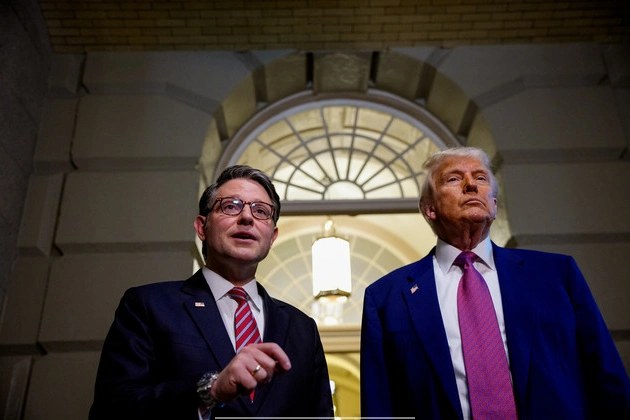
President Donald Trump’s House strategy of playing the closer on his “big beautiful bill” worked in the House. Now, White House officials and allies reveal plans to repeat the strategy in the Senate, waiting for Republicans to approach a final bill before intervening directly to sway lingering holdouts.
Senate Challenges: Conservative Wing vs. Spending Cuts
The Senate’s conservative wing seeks deeper spending cuts than those agreed upon in the House bill. Some lawmakers already oppose the House bill, testing the Senate GOP’s three-vote cushion. Trump’s involvement in critical junctures remains essential in bridging gaps and ensuring progress.
Distinct Senate Hurdles and Trump’s Engagement
Trump officials acknowledge unique hurdles in the Senate, shifting focus from the House to Senate negotiations. Treasury Secretary Scott Bessent and National Economic Council Director Kevin Hassett participate in crucial budget talks, emphasizing the importance of Senate dynamics.
Senate Republicans’ Independence
Senate Republicans exhibit independence in their approach, ready to engage in debates on Medicaid, taxes, debt limit, and other key issues. Sen. Ron Johnson criticizes the House bill’s spending levels, emphasizing the need for a pragmatic approach in the Senate.
Trump’s Directives and Senate Response
Trump’s instructions to GOP senators, including not touching Medicaid and revisiting Wall Street tax breaks, highlight key focus areas. Senate Republicans assert their autonomy and readiness to navigate complex issues independently, ensuring state interests are prioritized.
Future Senate Dynamics and Policy Reforms
Anticipated Senate debates on Medicaid cuts, spending, and fiscal responsibility reflect the diverse viewpoints within the party. Trump’s vision of a comprehensive bill faces challenges, with senators emphasizing the need for a balanced budget and substantial reforms.
White House’s Financial Strategy and Senate Acceptance
Despite reservations, a version of the bill is likely to pass, driven by political imperatives. The White House’s broader financial strategy, coupled with revenue generation and spending cuts, aims to address concerns and garner support for the legislation.
Senate Dynamics: Path Forward
The Senate’s deliberative nature and diverse interests pose challenges to bill passage. Senators assert their positions on key issues, signaling potential amendments and negotiations. The White House’s role in facilitating discussions and accommodating Senate priorities is crucial for bill success.
Unity Amidst Divergence
While senators hold varying views on critical issues, a shared desire for White House collaboration emerges. Senators seek flexibility in bill modifications to secure necessary votes and ensure legislative progress in the Senate.











